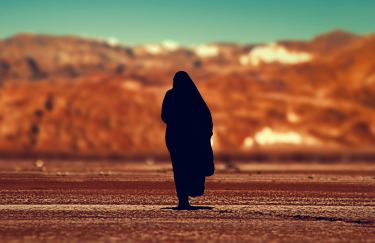
Relatives of a young Christian woman in Pakistan say they are devastated after she resurfaced in court declaring she had embraced Islam and married her Muslim neighbour, days after disappearing from her home in Rawalpindi.
The family of 21-year-old Monica Jennifer insist she was groomed, threatened and coerced, and that her court statement does not reflect her true wishes.
“She was a spirit-filled Christian, deeply committed to her faith,” said her brother, Raza Arif, a 27-year-old evangelist. “There is no chance she would willingly abandon her family and religion unless she was under pressure.”
Jennifer failed to return from work on 17 November. The family reported her missing the same evening, but police waited until 23 November to register an FIR, a delay, Arif says, that gave neighbour Waleed Ahmad, the accused, enough time to secure a forced conversion and marriage.
Rights groups say such delays are common, reflecting entrenched discrimination against Christians and other minorities seeking police protection.
Arif believes his sister’s statement in court, that she had freely converted and married, was made under duress. “She was already groomed for months. She was not speaking freely. We believe she is still under threat.”
He added that Ahmad’s relatives have warned the family to stop pursuing the case, threatening to file a blasphemy complaint, an accusation that can lead to mob violence or life-changing legal consequences.
Despite the intimidation, the family has filed an application with the Supreme Court-mandated One Man Commission for Minorities, led by Shoaib Suddle, seeking intervention and a proper investigation.
Arif also alleges the marriage certificate submitted by Ahmad is fraudulent. “It lacks his national ID number, and we believe the signatures of the officiant will also prove fake, if the police conduct a fair inquiry.”
Advocates say Jennifer’s case follows a long-standing pattern in Pakistan in which Christian and Hindu girls, often poor and socially vulnerable, are abducted, pressured into converting, and then presented as having freely married their abductors. Families frequently report coercion but are too afraid to challenge the claims in court.
“Once these girls are declared Muslim, they are warned that leaving Islam makes them apostates,” said Katherine Sapna, who works with survivors of forced conversion. “This threat keeps them trapped in marriages they never chose, amounting to a lifetime of abuse disguised as marriage.”
Christian lawyer Lazar Allah Rakha added that true religious conversion requires free and informed consent, conditions rarely met when abductors are present or exert control. “The fear of being labelled an apostate prevents many girls from returning home,” he said.
According to the Centre for Social Justice, at least 421 cases of forced conversion and marriage were reported between 2021 and 2024. Of these, 137 victims were Christian girls and 282 were Hindu. The majority, more than 70 percent, were minors, with many under the age of 14. Most cases occurred in Sindh, followed by Punjab.
Arif said the family’s only request is to meet Jennifer in a secure, neutral environment where she can speak without fear. “We just want her to be safe,” he said. “She knows we love her. We want her to know she can come home.”
Pakistan, where more than 96 percent of the population is Muslim, ranks eighth on Open Doors’ 2025 World Watch List of countries where Christians face the most severe persecution.
Adapted from Christian Daily International / Morning Star News.




